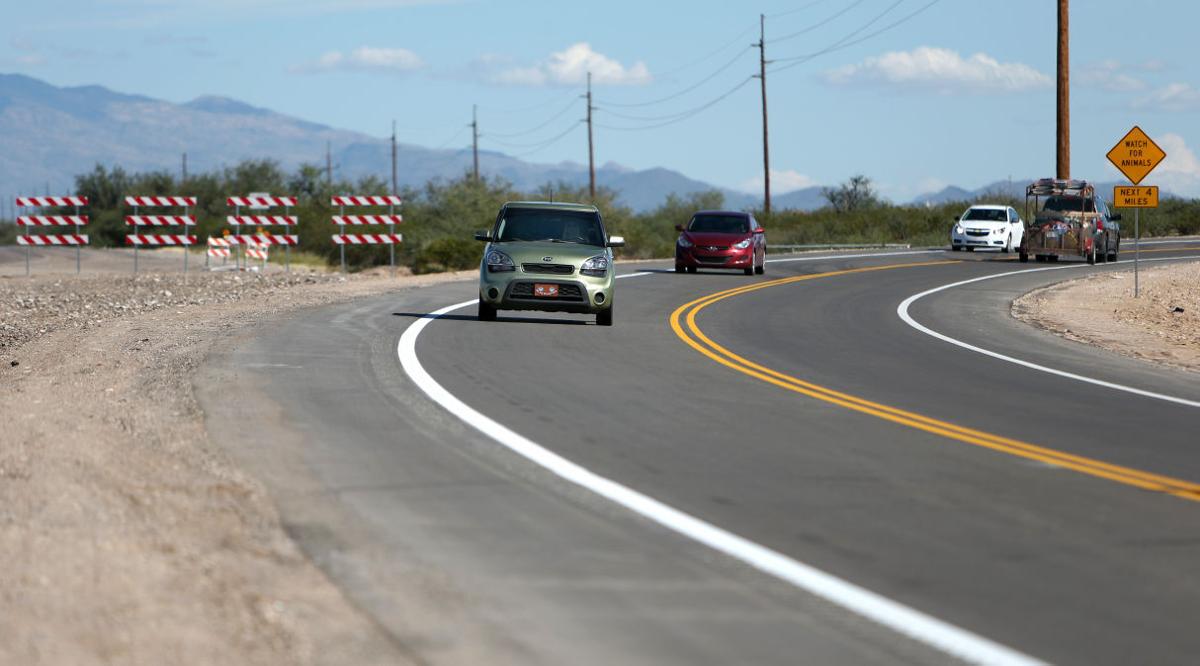Although voters rejected an $816 million bond proposal earlier this month, many local leaders want to resurrect at least one of the failed projects — even if it means another public vote.
“It’s going to have to come back to the voters again on a transportation question,” said Pima County Supervisor Ray Carroll of the rejected plan to fund $30 million for the first leg of a connection between interstates 10 and 19 south of Tucson International Airport.
Called the Sonoran Corridor, the project has broad support from both the public and private sectors as a major economic development opportunity. The area, which sits mostly free of development in noncritical desert scrub habitat, has been presented as a region ideally suited for large-scale industrial development.
With proximity to interstate highways, railways and air transportation, a connection between the interstates would act as a catalyst for private investment from shipping, logistics, international trade, aerospace and defense interests, proponents say.
“Quite frankly, if we’re going to be able to attract large-scale manufacturing and logistics businesses, we’re going to have to have that,” said Tucson Mayor Jonathan Rothschild.
Rothschild said he wants Pima County to consider moving ahead with a new, pared-down bond proposal, possibly as soon as next year, that includes funding for the Sonoran Corridor and for pavement preservation projects throughout the region.
For Pima County Bond Advisory member Joe Boogaart, it’s just too soon to ask voters for that.
“We need to take care of other things first,” said Boogaart, who was also a player in the successful campaign against the recent bond election.
With as many as 60 percent of streets in poor condition, Boogaart said, repairs should be the priority.
For many in the business community, however, the need to establish the region as one ready for new investment by preparing quality infrastructure ranks equally high on the list of priorities.
“We need jobs now, so we have to act now,” Metropolitan Pima Alliance Executive Director Amber Smith said. “That project is one where there was clear consensus across the region.”
Ramon Gaanderse, executive director at the Arizona Transportation Builders Association, agrees that the plan holds economic potential.
“It sounds good, and it looks good, so I hope it’s going to be be good,” Gaanderse said.
But he said the recent election should stand as a warning for elected leaders.
“The fact that all seven of the bond questions failed says something about how our elected leaders do business,” he said. “The corridor has to be exactly what they say” it will be.
The proposed highway has support beyond Tucson.
Federal funding for the plan has earned the support of Arizona’s entire congressional delegation.
The Sonoran Corridor has been included on both House and Senate transportation funding bills as a high priority project.
The priority designation increases the chances of getting federal funding for the project, which would make up the vast majority of the potentially $600 million construction project.
Pima County’s proposal in the failed bond question for $30 million would have funded an at-grade, east-west connection from about Rita Road and I-10 to the newly realigned Hughes Access Road, now called Aerospace Parkway.
Carroll said for the project to have any chance, local funding is crucial.
“You do not get federal funds without including local funding,” he said.
Pima County Administrator Chuck Huckelberry said that’s typically how large-scale transportation projects work. Projects approved in a 1980 bond to extend Kolb Road south to Valencia, Golf Links to Alvernon and Kino Parkway south to Ajo included $19 million in local funding.
“That probably drew in in excess of $200 million in federal funding,” Huckelberry said.
He said the same could be the case for the Sonoran Corridor plan.
Tucson City Councilman Steve Kozachik agreed the Sonoran Corridor plan should be funded, and supports asking the voters to do so.
“The economic impact of this is immense,” Kozachik said. “We will see Raytheon jobs in Huntsville, Alabama, if we don’t do this.” In 2010, Tucson-based Raytheon Missile Systems passed on expanding in Tucson, choosing Huntsville as the site for a new, $75 million factory employing hundreds of people.
But Kozachik urged that any plan that goes before voters be concise and specific so people know exactly what to expect and don’t experience the sticker shock many did with the past election.
The Board of Supervisors has no immediate plans for a 2016 bond election, but Huckelberry said future discussions are imminent.
“I believe bond funding is the appropriate mechanism, and could very well provide the local funding source,” he said. “It’s very much alive.”





